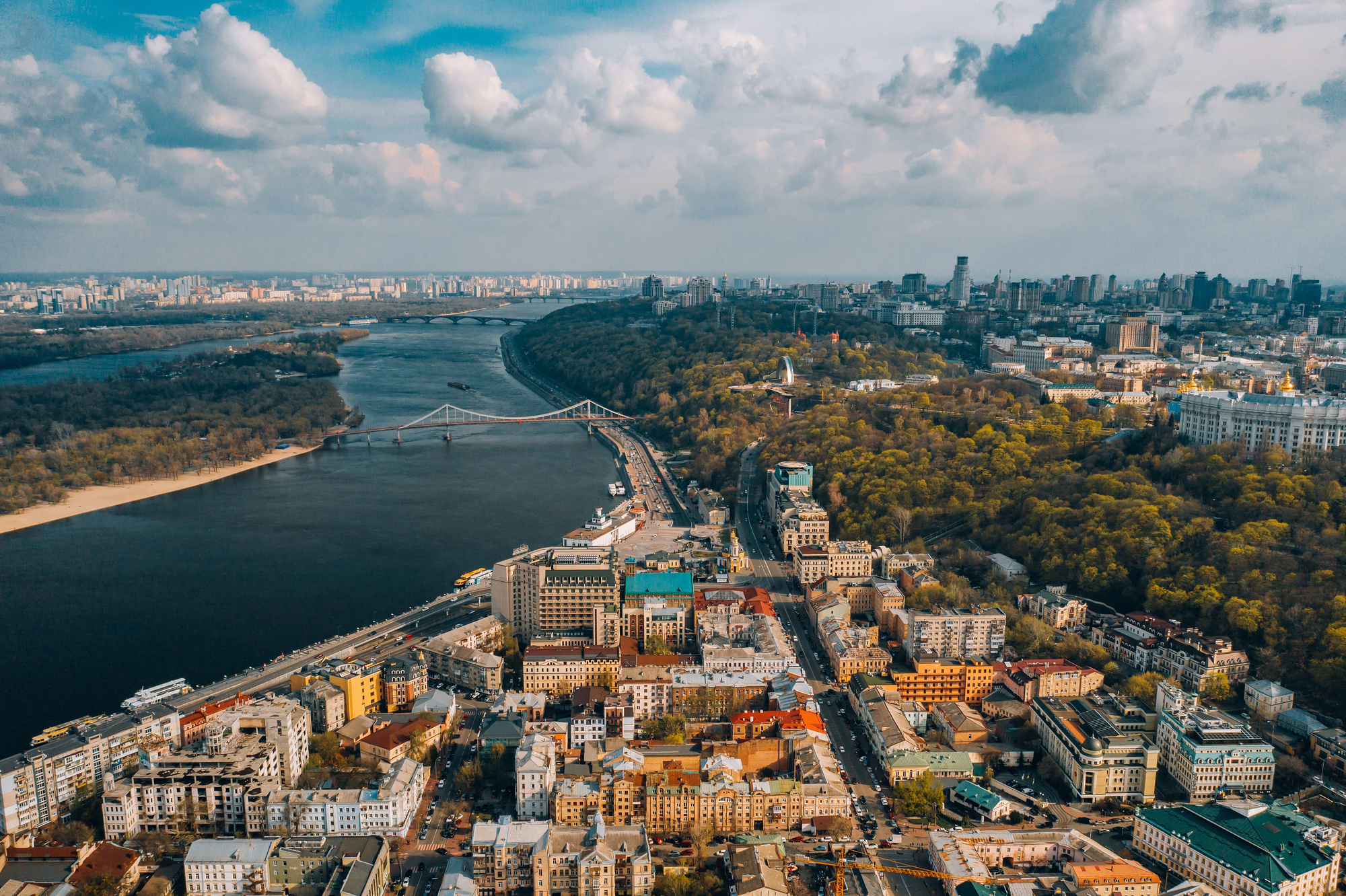Russia’s invasion constitutes an attack on Ukraine’s sovereign territory that has led to the loss of thousands of human lives, destruction, and to widely documented violations of human rights. A year into the escalation of this unlawful attack, and considering the vacillating positions adopted by some governments in Latin America and the Caribbean (LAC) such as Mexico and Brazil, it is vital that all countries in the region condemn Russia’s actions strongly. First and foremost for the major damages Russia is causing to Ukraine and the Ukrainian people; but also because Russia’s invasion is a major violation of the rule of law that jeopardises the future of an international rules-based system and that contradicts the unobjectionable principles that LAC, as a region, should stand for.
The war has also resulted in a massive shock to the world’s economy through the disruption of global supply chains and prices, which has negatively affected Latin America. Russia is a major player in global energy markets, accounting for 14% of the world’s total oil supply, and as a result the invasion has led to shortages, price volatility, and changes in trade flows. The attack has also distorted agricultural markets worldwide. The production of wheat in Russia and Ukraine represents 10% and 3% of global production, respectively, and the capacity of Ukraine – the third largest exporter of maize – to harvest and export crops has been greatly affected. These processes have exerted more pressure on inflation, which had already reached 14.6% in LAC during 2022.
The shocks and the responses
Latin America and the Caribbean represents 8.42% of the world’s population, with 665 million inhabitants, 6% of the world’s GDP, and 50% of the planet’s biodiversity. In 2021, the region’s exports represented 27.6% of its GDP, with petroleum oils, copper, soja beans, and cars constituting the top products. Brazil and Mexico rank 12th and 15th, respectively, in the list of the world’s largest economies. Mexico is particularly integrated with global supply chains through its vast network of trade agreements that give the country access to 50 countries, most notably in North America. A region of contrasts and heterogeneity, LAC has steadily traded with the world, with commodities being its driving force. In this regard, the effects in the LAC economies caused by the invasion of Russia can be analysed around three issues: fluctuations in commodity prices (mainly food and energy), exacerbated inflation, and increased pressures on monetary policy caused by this inflation.
Oil prices soared due to the sanctions imposed on Russia. Important regional oil producers such as Mexico, Brazil and Argentina, which have complex energy matrixes, are net importers of other inputs and final products whose price fluctuations affect their trade balances and price structure. Measures in response to price surges of fuels – such as price subsidies and tax cuts on fuel in Brazil and temporary elimination of tac on fuel in Mexico and Peru – created significant fiscal pressures. In the case of Mexico, for example, the growth of revenues for Pemex, the state’s oil company, were not enough to compensate for the cost of subsidies to fuel in 2022, so the increase in oil prices had a net negative overall effect on public finances.
In terms of inflation, most countries in LAC were already facing out-of-target results, and average regional inflation soared to 11.6% in 2021 (according to the IMF). The outbreak of the conflict led to increased prices of important products such as wheat and maize, resulting in worldwide food inflation. As a consequence, Chile, for example, established customs duties while Colombia eliminated tariffs on food and other commodities. According to the IMF, inflation in the region is forecasted to have reached 14.6% in 2022, which is 3 percentage points higher than the already high figure from the previous year.
Food inflation has been especially worrisome for many of the continent’s most disadvantaged, in a region where, according to the Economic Commission for Latin America and the Caribbean (ECLAC) one third of the population, or around 200 million people), live in poverty. A recent report by the UN’s Food and Agriculture Organization concluded that by the end of 2022, 22.5% of the population in LAC (131.3 million people) could not afford a healthy diet (FAO 2023).
One consequence of the sustained inflation across the region has been heightened pressure for the tightening of monetary policy, thus exacerbating a trend of increasing interest rates in the aftermath of the Covid-19 pandemic. The trade-off between recovery and price stabilisation has become more salient and the fiscal space for governments has been notably reduced. In the context of reduced global growth, the conflict cost accounted for 1% of the global GDP in 2022 (according to the OECD).
It is thus clear that during 2022 Latin America and the Caribbean suffered direct negative economic effects of Russia’s invasion of the Ukraine and there was a wide variety of policy responses aimed at mitigating these effects, with enormous costs in terms of growth, budgets, and welfare.
A neighbourhood divided
The war in Ukraine has led to at least two very different political reactions. In the case of Mexico and Brazil, both presidents declined to condemn the invasion back in 2022. Moreover, they framed their positions at the time in such ambiguous terms that some have interpreted them as pro-Russia. Bolsonaro visited the Kremlin the week before the invasion, while López Obrador has insistently criticised the military support offered to Ukraine by NATO – particularly by the US. It is worth noting, that Mexico’s foreign policy principle of ‘non-intervention’ has not implied neutrality in conflicts in the past. It is clear that government ideology in two of the leading countries in Latin America has been prioritised ahead of the defence of international law and human rights.
But this has not been the majority position in Latin America, where 19 countries voted in favour of the United Nations General Assembly Resolution of 7 April 2022, by which the Assembly voted to suspend Russia from the UN Human Rights Council (Table 1).
Table 1
| In favour | Abstention | Against |
| Antigua and Barbuda | Barbados | Bolivia |
| Argentina | Belize | Cuba |
| Bahamas | Brazil | Nicaragua |
| Chile | El Salvador | |
| Colombia | Guyana | |
| Costa Rica | Mexico | |
| Dominica | Saint Kitts and Nevis | |
| Dominican Republic | Suriname | |
| Ecuador | Trinidad and Tobago | |
| Grenada | ||
| Guatemala | ||
| Haiti | ||
| Honduras | ||
| Jamaica | ||
| Panamá | ||
| Paraguay | ||
| Peru | ||
| Saint Lucia | ||
| Saint Vincent and the Grenadines |
While the relationship with the US and Europe, in some cases, and domestic politics of each country account for much of the variation in this positioning, this division contrasts sharply with other regions such as Europe, where support for Ukraine has been mostly unanimous. It is also relevant to emphasise that Mexico was part of the UN Security Council until 2022 and Brazil and Ecuador are current members until 2023 and 2024, respectively. Regarding its political position on the war in Ukraine, Latin America is a divided neighbourhood. This is the result of the polarisation, populism, and pragmatism that are pervading this increasingly fragmented part of the world.
Ukraine matters for Latin America
Apart from the evident negative economic consequences of the war, what is at stake in this conflict is the future of democracy and the rule of law in an uncertain and volatile world. The invasion of Ukraine by Russia should matter to LATAM as a matter of principle: the flagrant violation of international law must be condemned by every country that stands for peace and democracy and which aspires to a more prosperous world.
In this regard, countries like Brazil and Mexico, which exert a significant degree of influence in the region and which have multiple belongings in the international sphere (for example, in the G20) should bear in mind a series of factors to develop a more creative, yet strong position. To begin with, this invasion constitutes a flagrant attack on the international law regime by Russia, and this fact cannot be overlooked. Additionally, both Mexico and Brazil are facing significant challenges in terms of economic growth, inflation, and, in the case of Brazil, an urgent need for fiscal consolidation – let alone Argentina, the third largest economy in the region, which is in the middle of a $44 billion stand-by agreement with the IMF. The way in which economic growth behaves will define political margins for the three countries, one of which – Brazil – has a recently elected government while the other two – Argentina and Mexico – will have presidential elections in 2023 and 2024, respectively. In addition, the fight against poverty has also been affected by the war on Ukraine, particularly due to its effects on the cost of living, notably the shock to food prices. Finally, the evolution of the conflict in Ukraine will also continue to affect monetary policy and interest rates, which will in turn affect the stance of public finances.
Latin America and the Caribbean has experienced political fragmentation in the past, but the region has also been able to stand united in favour of international principles such as peace and sovereignty. If Ukraine is not a good reason to stand for the best causes of humanity, then what is?
References
FAO – Food and Agriculture Organization of the United Nations (2023), Regional Overview of Food Security and Nutrition – Latin America and the Caribbean 2022.
#helpUkraine_helptheWorld
This publication is a part of a collection of essays initiated by the National Bank of Ukraine. Famous economists, political scientists and historians, experts recognized in the world, volunteered to share their thoughts and arguments on why helping Ukraine is helping the world. The complete book of essays can be found via the link.
Attention
The authors do not work for, consult to, own shares in or receive funding from any company or organization that would benefit from this article, and have no relevant affiliations




